Are Swiss trains on the right tourist track?
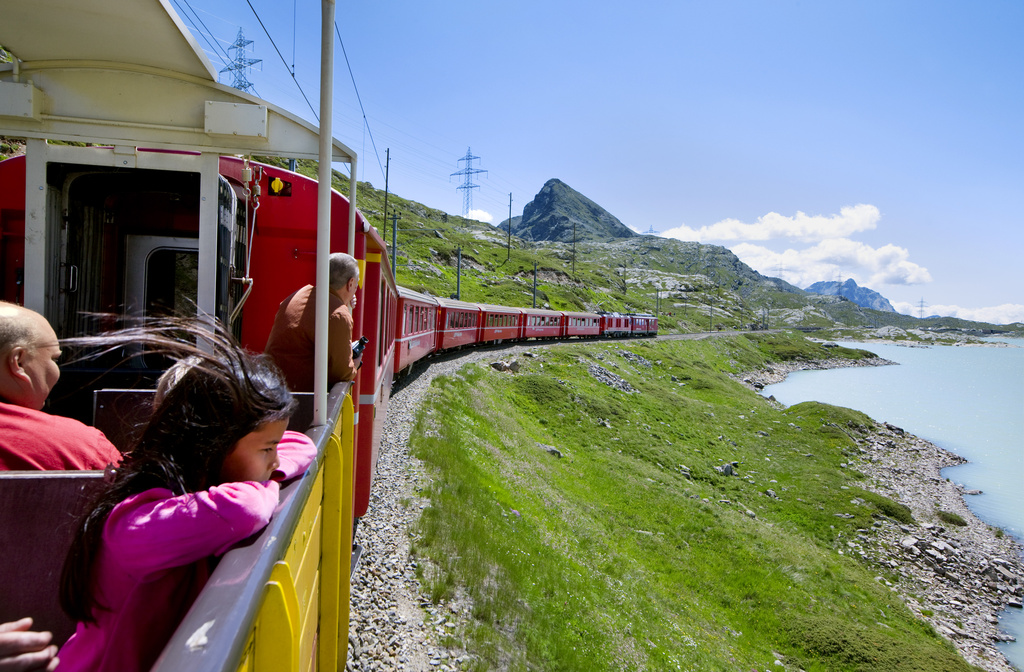
As ticket prices go up again, swissinfo.ch looks at whether travelling by train in Switzerland as a tourist is an expensive hassle or good value for money.
This week the Public Transport Association announced that in December ticket prices for trains and postal buses would increase by an average of 5.9 per cent, the first major hike in public transport fares in three years.
But there’s good news for tourists: the various train passes aimed at visitors will stay the same, according to Daniele Pallecchi from Swiss Federal Railways, who rejected the popular belief that Swiss trains were prohibitively expensive.
“International studies show that Swiss ticket prices are average within Europe,” he told swissinfo.ch.
“Switzerland isn’t a low-price country – tourists know that – but we work with tourism organisations to offer attractive packages.”
Indeed visitors from Britain in particular, where a survey last year found that train fares were on average 50 per cent higher than on the continent, will be pleasantly surprised.
The current strong franc doesn’t help, but a well-chosen train pass can soon pay for itself.
That said, one person’s impressive variety is another person’s confusion. Tourists have five basic options: Swiss Pass, Swiss Card, Swiss Flexi Pass, Swiss Half Fare Card and Swiss Transfer Ticket (see Switzerland Tourism link for details).
In addition, some 2.2 million Swiss own a half-price card, which for SFr150 ($144) a year enables them to travel the entire network at half price – an option frequent visitors could consider.
Too confusing?
Daniella Bär from Switzerland Tourism denied it was all too confusing.
“You have to find a middle ground: if there were too few categories, people would be disappointed,” she told swissinfo.ch.
“It’s a question of finding a good mixture of offers which apply to most travellers – whether they’re a pensioner, student, travelling as a family and so on.”
Pallecchi highlighted the various scenic routes such as the Glacier Express, the Bernina Express and the GoldenPass Panoramic.
“Tourists really like using Swiss trains because the network is not just for commuters but also for people enjoying their free time,” he said.
“Superb reputation”
Swiss trains get good marks from The Man in Seat 61, a British travel expert who started a successful website in 2001 to simplify international rail travel, which in his view is far more practical, affordable, quick and comfortable than most people imagine.
“Swiss railways have a superb reputation among travellers from Britain and elsewhere for the efficiency, cleanliness, on-time performance and scenery, as well as frequency and convenience thanks to regular interval timetables and easy connections,” The Man, aka Mark Smith, told swissinfo.ch.
Daniella Bär backs this up.
“Swiss public transport is really highly praised. The timetables are not only very reliable – punctuality is always at the top of surveys – but also well thought out: if you want to visit some valley and need to take the train and bus to get there, the timetables are integrated,” she said.
Travellers rarely have to wait more than ten minutes when changing trains.
Not perfect
Not that Switzerland is train paradise. Smith points out that there are no cheap off-peak or advance-purchase tickets available to reduce the cost by travelling outside peak periods or by booking in advance, as there are in Britain, Germany, France, Spain and elsewhere.
He gives the example of two friends who had travelled with him to Zermatt but ended up hiring a car to return to Geneva airport as it was cheaper.
“If there had been a cheap advance-purchase deal or an off-peak fare for travel after 10am, they might have gone by train.”
In fact, in this case the Swiss Transfer Ticket might have been a good option: a return ticket from the Swiss border or one of Switzerland’s airports to a destination costs SFr127 second class for an adult.
On the positive side, Smith says the fact that you don’t need to reserve in advance and can just buy a ticket and hop on a train is a “major advantage”, when countries like Spain and France now force people to pre-book non-changeable tickets and risk a train being full if they don’t.
“Rail passes in Switzerland retain their ‘convenience factor’ as trains do not require reservations and pass holders do not have to pay surcharges – you can just hop on any train and flash your pass.”
“Rip off”
To see what real-life tourists think, swissinfo.ch jumped on a train (using a half-fare card) and headed for the station at Interlaken, a hot spot for mountain-bound visitors.
Alvin Goh from Singapore bought a four-day Swiss Flexi Pass, which cost SFr230.
“Honestly I think it’s expensive. But I guess things in Switzerland are expensive. I try to make use of it as much as possible, especially the panoramic rides. It’s definitely more expensive than home. If the prices were lower, even more people would come. If I were to rate how expensive it is on a scale of one to ten, I think it would be nine.”
Neha Sharma and her family had just flown in from Mumbai, India. They eventually opted for the four-day Swiss Pass which gives free travel almost everywhere.
“But it’s still very expensive – between the four of us we’re spending close to 36,000 rupees (SFr815), which is a lot. Back home, travel is very, very cheap. To go to the US or Southeast Asia is way cheaper. It’s a rip-off but I guess it’s better than the daily passes.”
She added: “In Switzerland everything is expensive. The hotels, the food. I think you just come with the mindset that it’s expensive and you deal with it.”
Thomas Stephens, swissinfo.ch (With input from Jessica Dacey)
The Swiss are the world champions when it comes to taking the train – last year they travelled on average 2,422 km per person by rail, according to figures of the Swiss Information Service for Public Transport at the end of September. These drew on International Union of Railways figures for 2008.
This is 300km more than in 2007. Only the Japanese come close to the Swiss total at 2,010km, with France in third place at 1,377km. Trains are least used in Lithuania at only 112km per person in 2008.
The Swiss top the European list in terms of number of times the train is taken, at 50 times per annum. The Japanese lead the world rankings at around 70 times a year.
Around 9,000 trains travel the Swiss Federal Railways network every day. 1,000 trains arrive at and depart from major stations daily and heavily used track sections count 500 trains a day.
Federal Railways says that its network has the highest density of traffic in Europe. Nevertheless, it says that 19 out of 20 passenger trains arrive at their destinations within four minutes of the scheduled time.
The company reported a nearly 27 per cent rise in profits for the first half of 2009 to SFr132.8 million. Operating expenses fell by SFr201.2 million, it said in September.

In compliance with the JTI standards
More: SWI swissinfo.ch certified by the Journalism Trust Initiative


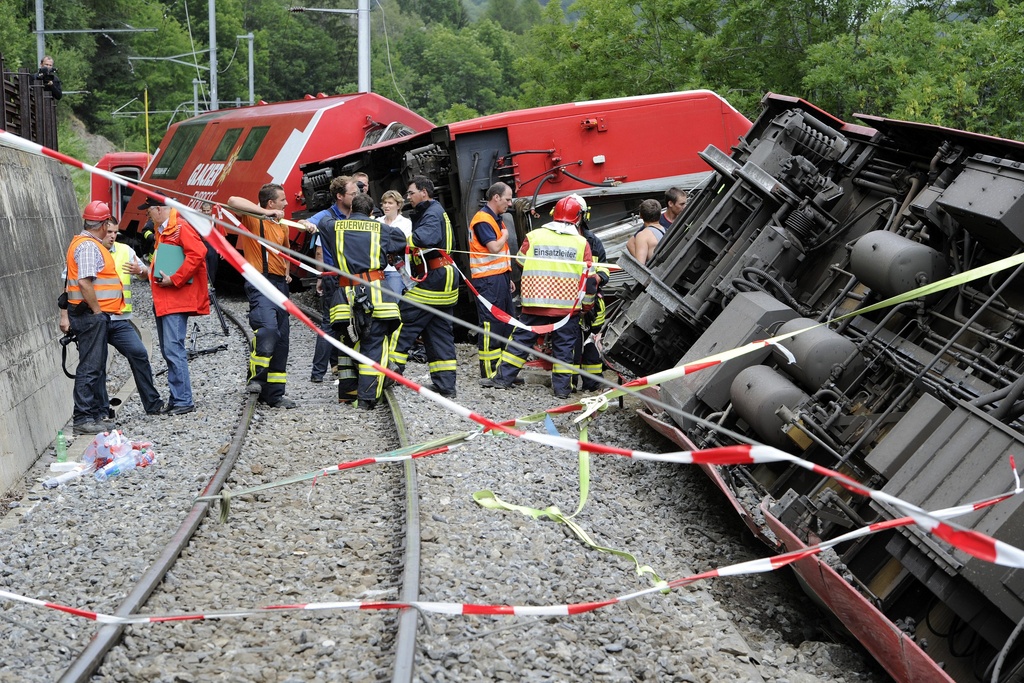
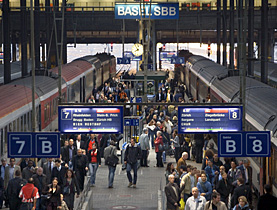
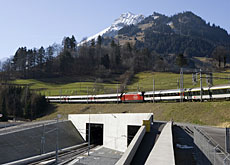
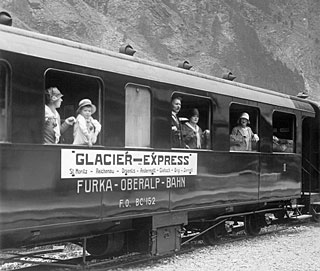
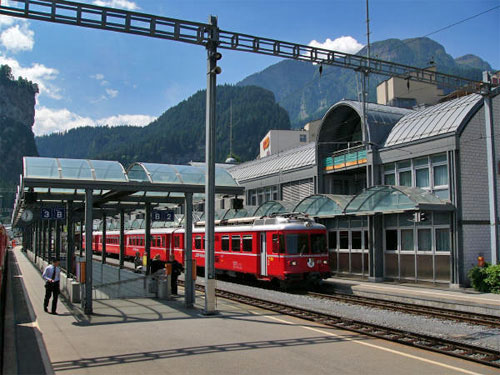
You can find an overview of ongoing debates with our journalists here. Please join us!
If you want to start a conversation about a topic raised in this article or want to report factual errors, email us at english@swissinfo.ch.